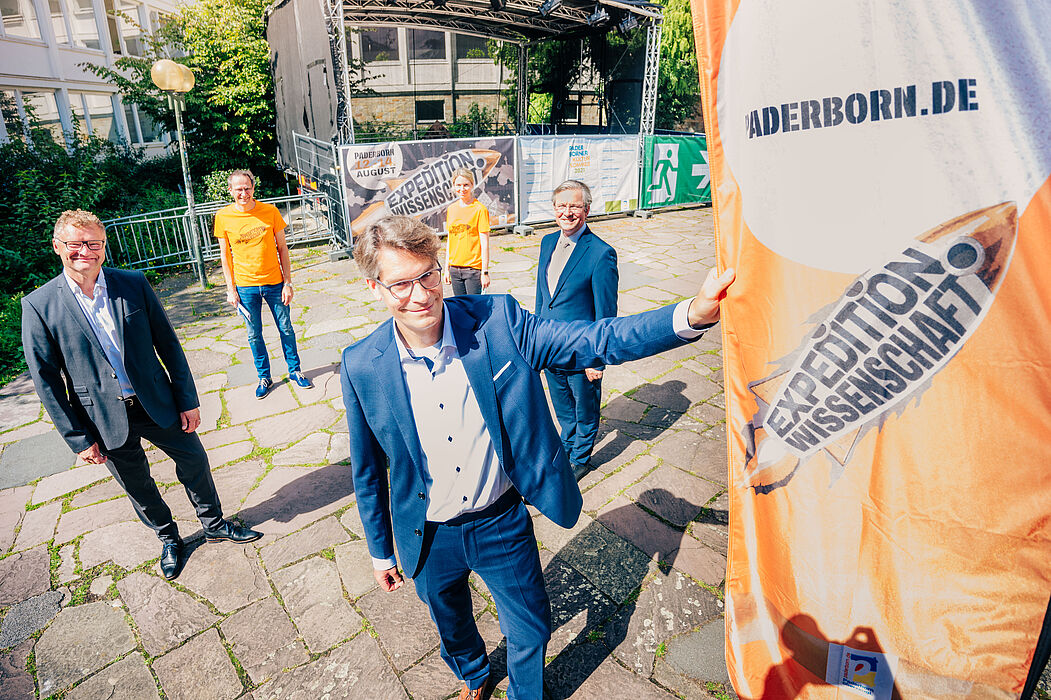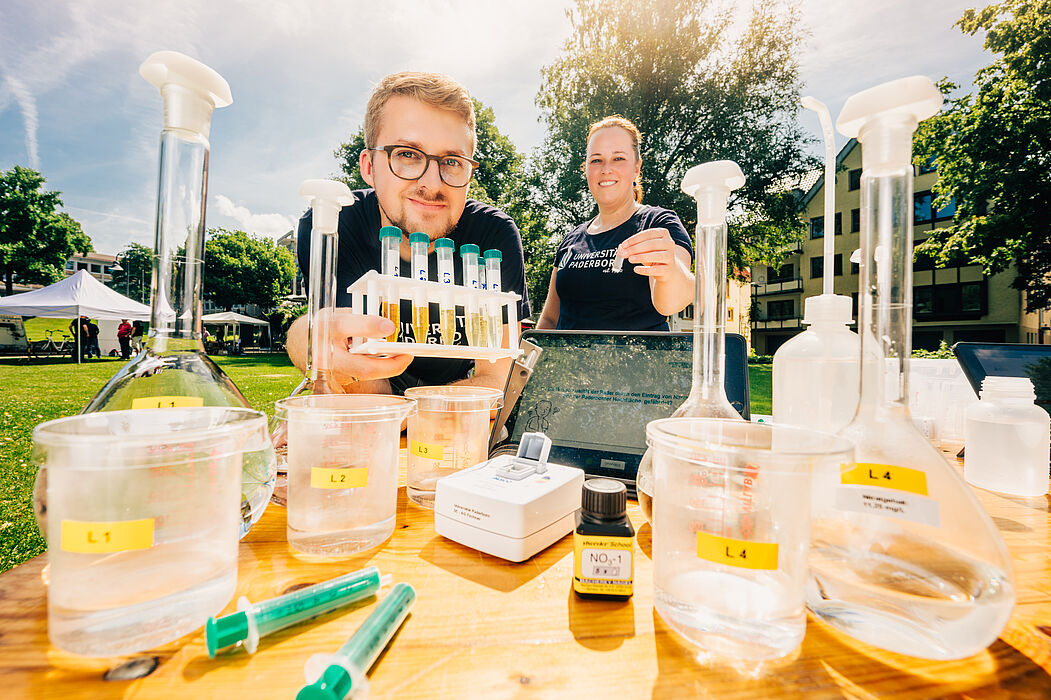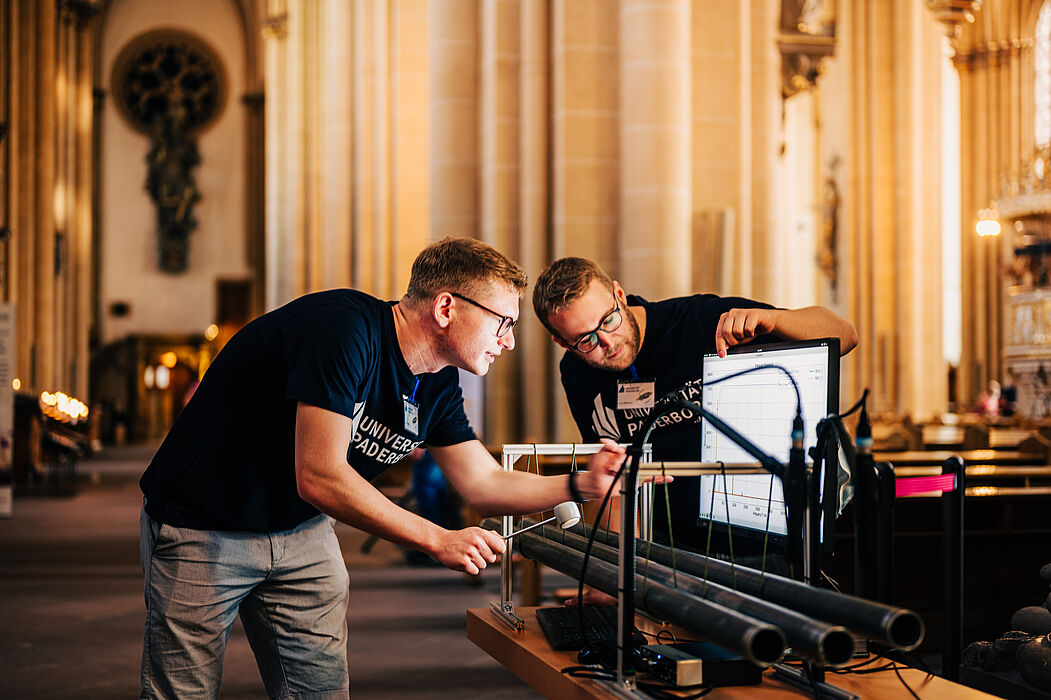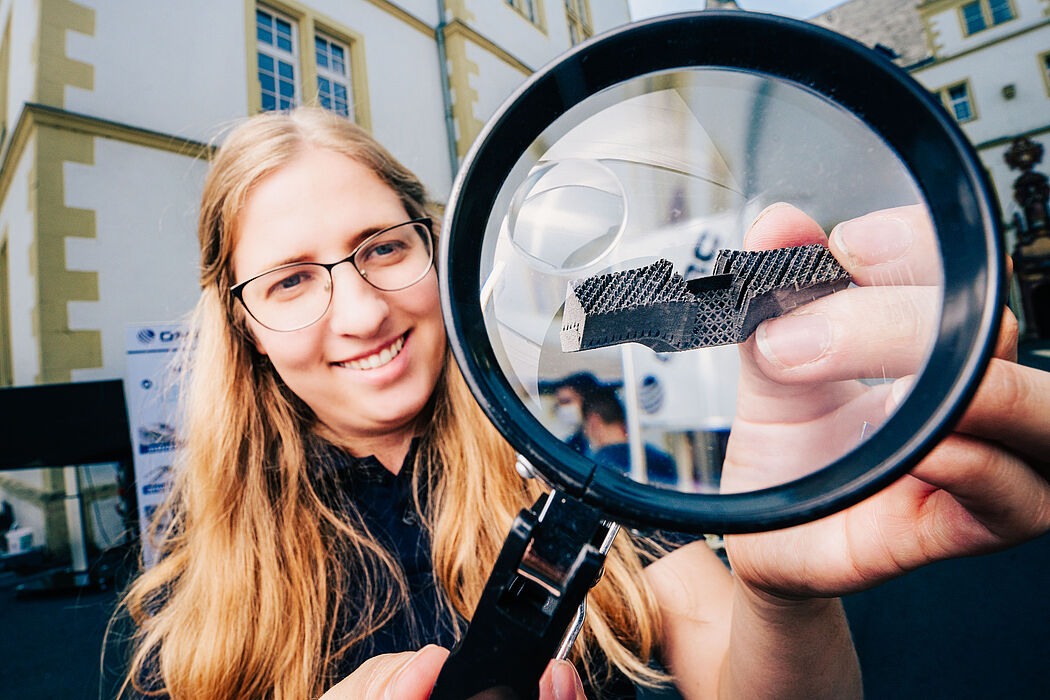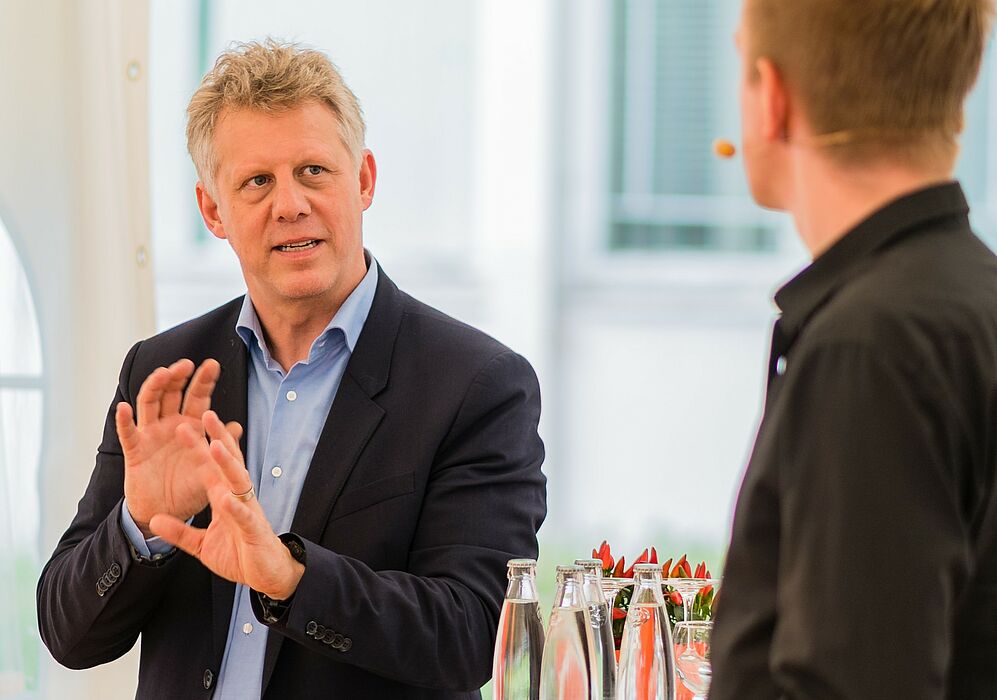Last week, numerous visitors to central Paderborn embarked on an exciting journey through the world of research: from Thursday 12 to Saturday 14 August, the first ever ‘Expedition Science’ enticed visitors with around 80 exciting offerings and more than 150 individual activities for all ages. Experimental stations, tours, workshops, audio walks, rallies and many other hands-on activities offered an opportunity to research, discover and try new things in perfect weather conditions.
Whether physics or history, art and music or archaeology, IT or engineering, ‘Expedition Science’ offered something for everyone thanks to a very broad range of topics. With around 550 registrations for the programme offered by the participating institutions (including Paderborn’s universities, museums and churches, associations, and a wide variety of city society figures and establishments), the launch of this new event format was a resounding success. Many of the tours and workshops were fully booked even before ‘Expedition Science’ began. In addition, many of the activities available offered an opportunity for a spontaneous exploration of the city centre. On the Saturday in particular, many families took advantage of this to venture into the exciting subject areas available to discover during the event.
The 30 programme items of ‘Expedition Science’ covered various departments of Paderborn University: visitors could for example work with scientists from the Chemistry department to collect data about the waters of the Pader at the river’s source, whilst researchers from the Measurement Engineering subject area offered an opportunity to explore the world using notes and sounds at Paderborn Cathedral. 3D printing was also brought to life for visitors by the university's Direct Manufacturing Research Center (DMRC). In addition, scientists from the ‘Constructing Explainability’ Collaborative Research Center explained how an educational robot works, and the interactive microgrid demonstrator from the Power Electronics and Electrical Drives subject area gave interested people an opportunity to try using their muscles to illuminate light bulbs.
Another highlight of ‘Expedition Science’ was the Science Café, which took place in Franz-Stock-Platz on the Friday afternoon. Under the slogan ‘Combining innovation and chaos – the impact of the pandemic’, Dr. Sierk Poetting from the executive board of BioNTech, Prof. Torsten Meier, head of anaesthesia at Brüderkrankenhaus hospital, historian Prof. Malte Thießen, journalist Karl-Martin Flüter, theatre manager Katharina Kreuzhage and chair of Paderborn University’s Student Union Sharlene Frammelsberger all offered interesting insights into life and work during the coronavirus pandemic.
Together with Paderborn University and the Heinz Nixdorf MuseumsForum, Paderborn’s city marketing department organised the ‘Expedition Science’ event for the first time this year. The event served as a prototype for the ‘Science Festival’ that will be launched in 2023 and then will return every other year. The interactive, experience-oriented event format is designed to inspire curiosity and offer new, creative ways of accessing science and research. This year a total of 22 institutions from the worlds of science, culture and city society took part in ‘Expedition Science’.
More impressions from ‘Expedition Science’ will soon be available to read here: www.paderborn.de/expedition-wissenschaft.

